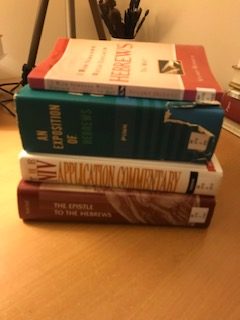In yesterday’s post I made the first of two suggestions as to how get more familiar with the whole of Scripture, namely adopting a reading plan that will help take you through the whole Bible in a year, so that there are no NO GO or NOT GONE parts of Scripture.
My second suggestion has a much narrower focus, looking at depth rather than breadth. I am amazed how little real Bible study so many Christians do for themselves. For most Christians, their engagement with Scripture, other than what they get in church on a Sunday, is more or less limited to a few verses, or a couple of paragraphs, of the Bible each day, often accompanied by a devotional aid which is, more likely than not, a fairly superficial, spoon-feeding approach that provokes little in-depth thought, reflection or application. If you think I am being somewhat harsh I have to say this is my personal observation after many years in pastoral ministry.
I want to encourage you to dig deeper, much deeper, for yourself.
At the start of this new year, why not choose a book of the Bible that you feel unfamiliar with – one of those as yet NOT GONE ones, perhaps, and make it your aim to get to know it – really get to know it – for yourself. Try setting aside one evening a week, or some other regular time, and leave the TV switched off – it’s mostly unwatchable anyway! – silence your phone and social media, and study.
For myself, I have just started an in-depth study of Hebrews, the book which, I have to confess, even at this stage of my life and ministry, is probably the New Testament book I am least familiar with. I have chosen some good companions for this journey and I would encourage you to do the same. I am talking about commentaries. At the very least, choose one good commentary that will help you get into the background of your chosen Bible book, as well as bring out its relevance for today.
Without knowing which book of the Bible you are going to study, it is difficult to advise, but in general terms, something from IVP’s The Bible Speaks Today series would help you greatly, as would one of The NIV Application Commentary series, even if you are not using the NIV. You will find a wealth of resources and recommendations at www.bestcommentaries.com or here.
If you can cope with more than one commentary, add one that is just a bit more technical and helps you understand something of the original language in which the text was written, and you don’t need to be familiar with the original languages yourself.
As I get into Hebrews, I actually have four commentary companions, chosen out of many that I am privileged to have access to in my library.

I Wish Someone Would Explain Hebrews To Me is by Stuart Olyott and published by Banner of Truth. Stuart has an amazing gift of making the complex seem clear and in this relatively short volume of just 190 pages, he gives great accessible insights into Hebrews. Try and get something similar for the Bible book you are studying. Warren Wiersbe’s Be series is also very good for giving you the big picture and concise commentary on a book.
Hebrews, by George Guthrie in The NIV Application Commentary series, is also on my desk beside me, as is Gareth Lee Cockerill’s commentary in The New International Commentary on the New Testament series by Eerdmans. This fits into the more technical category I mentioned earlier and adds some real depth and weight, while still being very readable.
I also working through an old classic, A W Pink’s An Exposition of Hebrews. It’s certainly not concise at 1300 pages, but it is wonderfully devotional and insightful and a great balance to the others.
I hope some of these comments are helpful and I am more than happy to respond to any questions or suggestions you might have. Just email me: john(@)route66.org.uk
